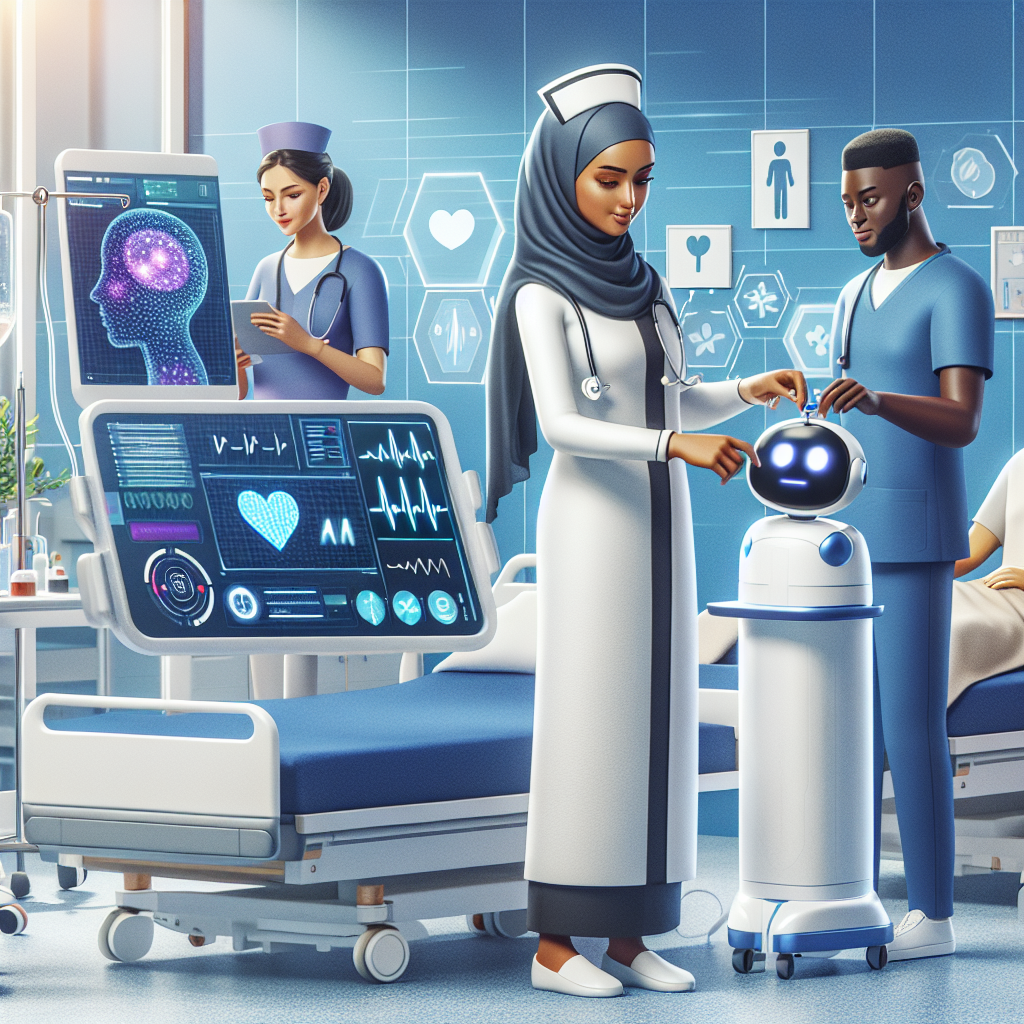In today’s rapidly evolving healthcare landscape, the integration of Artificial Intelligence (AI) has transformed patient care in ways that were once unimaginable. Nurses, being at the heart of patient care, are harnessing these technological advancements to enhance their practice and improve patient outcomes. This article explores how nurses are integrating AI into their daily routines, showcasing innovative approaches and humanizing the technology that is shaping modern healthcare.
Understanding the Role of AI in Healthcare
AI in healthcare encompasses a range of technologies, including machine learning, natural language processing, and predictive analytics. These tools are designed to analyze vast amounts of data quickly and accurately, allowing healthcare professionals to make informed decisions based on real-time information. By automating routine tasks and providing insights, AI enables nurses to focus more on patient-centered care.
Streamlining Administrative Tasks
One of the most significant impacts of AI on nursing practice is the automation of administrative responsibilities. Tasks such as scheduling appointments, managing patient records, and billing can be time-consuming. AI-powered systems can streamline these processes, allowing nurses to dedicate their time to direct patient care.
Example: Chatbots for Patient Interaction
Nurses are increasingly utilizing AI-driven chatbots to facilitate communication with patients. These chatbots can answer common questions, schedule appointments, and even gather essential health information, freeing nurses to concentrate on more complex patient needs. This innovation not only improves efficiency but also enhances patient satisfaction as they receive prompt responses to their inquiries.
Enhancing Clinical Decision Making
AI can significantly reduce the cognitive load placed on nurses by providing them with data-driven insights to support clinical decision-making. Predictive analytics tools can analyze patient histories and identify potential health risks before they develop into critical issues.
Example: Early Warning Systems
Innovative early warning systems integrated with AI algorithms can monitor vital signs in real-time, alerting nurses to any deviations that may indicate deterioration in a patient’s condition. This proactive approach ensures timely intervention, which can be critical in preventing adverse events and improving patient outcomes.
Personalized Patient Care
One of the most compassionate aspects of nursing is the ability to provide personalized care. AI is enhancing this by offering insights tailored to individual patients, allowing nurses to create customized care plans that address specific needs.
Example: AI-Driven Health Analytics
AI-driven health analytics can analyze data from wearable devices and mobile health applications to provide nurses with a comprehensive view of a patient’s health. By understanding trends in health metrics over time and individual preferences, nurses can develop personalized interventions that reflect each patient’s unique circumstances.
Supporting Mental Health Initiatives
Mental health is an integral component of overall patient care, and AI is playing a pivotal role in supporting nurses in this area. AI tools can assist in identifying patients who may be struggling with mental health issues, facilitating earlier intervention and support.
Example: Sentiment Analysis through AI
Natural language processing can analyze patients’ written or spoken responses to detect indicators of anxiety or depression. By providing nurses with this information, they can engage in more meaningful conversations with their patients and provide appropriate resources and referrals, thereby enhancing mental health support.
Bridging the Communication Gap
Effective communication is crucial in nursing, and AI is helping bridge communication gaps between patients and healthcare providers. Language barriers, technological illiteracy, and complex medical jargon can hinder patient understanding and engagement.
Example: AI Language Translation Tools
AI-powered language translation tools help nurses communicate effectively with non-English-speaking patients. By breaking down language barriers, nurses can provide clearer instructions and education, ensuring that all patients receive equitable care and fully understand their treatment plans.
The Future of Nursing and AI Integration
As we look to the future, the integration of AI in nursing practice will continue to evolve. Ongoing training and education for nurses on AI applications will be essential, as will an emphasis on maintaining the human touch in patient care. While technology offers remarkable improvements, the importance of empathy, compassion, and human connection remains paramount in nursing.
Conclusion: A Collaborative Approach to Healthcare
Nurses are pivotal in the successful integration of AI in healthcare. Through innovative applications, they are not only enhancing efficiencies but also ensuring that patient care remains at the forefront. As technology continues to develop, nurses will play a vital role in steering this evolution, combining their expertise with AI to deliver a higher standard of care. Together, they bridge the gap between technology and humanity, creating a healthcare environment that is more responsive, proactive, and compassionate. In this era of innovation, embracing AI allows nurses to fulfill their calling—not just as caregivers but as pioneers in transforming patient care.


